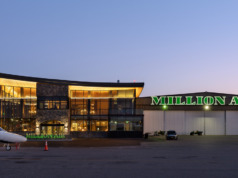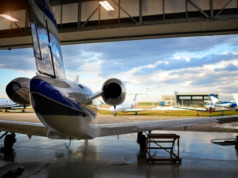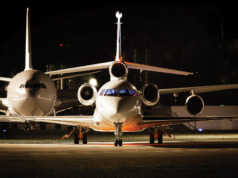
Using apps makes shopping for things simple and efficient – provided there’s no need to test, try on, or demonstrate their use before buying.
But when it comes to service, that’s another matter. With more than 5,000 U.S. airports available to business aircraft (more than ten times the number served by commercial airlines) relying on just an app to handle the purchase of your aircraft and passenger service requirements is risky business. Today, online purchasing clubs and associations can find you the lowest fuel price, but there’s much more to consider when you fly, particularly when travelling to new locations.
Business aviation ground services require qualified people at both your departure and arrival Fixed Base Operations (FBOs). Because unlike a computer or a book, once delivered, bad service can’t be returned.
Good aviation service means that professional line technicians will be on the ramp, when you need them, round-the-clock, at both your departure and arrival points. They will have been trained in all aspects of aircraft service – from fueling and towing a myriad of different turbine and piston aircraft makes and models, to interior cleaning and lavatory services. Maintenance technicians will be available to handle most minor repairs, enabling you to continue your flight itinerary without having to ferry to another airport. All these aviation experts are charged with the care and preservation of your aircraft – a capital asset with a replacement cost that can run up to eight figures.
The expert care doesn’t stop on the ramp or in the hangar. At the counter, trained Customer Service Representatives (CSRs) greet you and your passengers, handle any questions, and manage all the non-technical aspects of your departures and arrivals. Need ground transportation, including limousine, taxi, or a rental car? What about catering for longer flights that span meal times? While there may be an app for that, clarifying special dietary concerns are best handled in a single telephone conversation with a trained FBO service professional, familiar with local providers’ capabilities. Trained CSRs also use that local knowledge to find and reserve safe and comfortable lodging for you and your crew, arrange a meeting, and much more – and do so observing the highest levels of personal and corporate security.
These service experts understand that you use business aircraft to ensure travel privacy and security, as well as convenience. Maintaining that privacy requires discretion and ensuring your security means secure facilities, for both based and transient aircraft. Federal government transportation authorities dictate most ramp and facility security requirements, but it’s up to each FBO’s onsite personnel to monitor ramp and hangar gate access, and the passenger lounge, via closed-circuit cameras, and to quickly respond to any unwarranted or unwanted intrusions.
These safety and security concerns are among the reasons more FBOs have stepped up to earn their International Standard for Business Aircraft Handlers (IS-BAH) rating, which gives aircraft owners like you confidence that your capital asset is being handled properly. Adopted by the National Air Transportation Association and the International Civil Aviation Organization, IS-BAH is a business aviation ground handling best practices standard, based on the International Civil Aviation Organization’s safety management system principles. (See “Handling With Care,” BAA January/February 2019).
An app may enable you and your flight operation to search for the best fuel price at any airport, and determine when and where to refuel on your itinerary. But whether your destination is an independent or network FBO location, only human communication and a human touch can provide the attention to service and safety detail you – and your aircraft – need. In the words of the late National Aviation Hall of Fame member Harry Combs, it requires “people serving people.” BAA
Business Aviation Advisor's content is presented by experts in all aspects of aircraft management: professionals knowledgeable in operations, legal and regulatory issues, insurance, aircraft finance, human resources, aviation real estate, charter and charter brokers, safety management providers and auditors, and third-party as well as owner aircraft management. These authorities provide Business Aviation Advisor readers with the most current and pertinent information they need to make the most effective and informed decisions about their business aviation investments.




